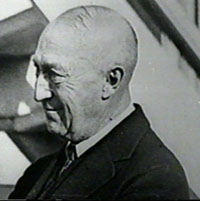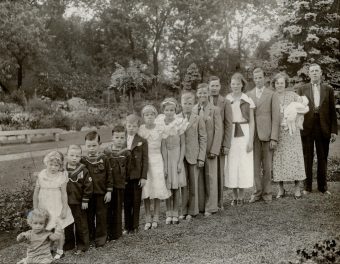The Last Laugh- Millionaire Charles Vance Millar and His Practical Jokes from Beyond the Grave
 For many people, being dead is a fairly limiting handicap that prevents them from doing most of the things the living take for granted. In the 1930s, a man called Charles Vance Millar challenged that unfair stereotype via various stipulations of his will that allowed him to continue playing jokes on people despite being dead.
For many people, being dead is a fairly limiting handicap that prevents them from doing most of the things the living take for granted. In the 1930s, a man called Charles Vance Millar challenged that unfair stereotype via various stipulations of his will that allowed him to continue playing jokes on people despite being dead.
A lawyer by trade, Millar possessed a daunting intellect and an incredibly sharp legal mind. Born in Canada in 1853, he excelled at nearly everything he tried his hand at, reportedly scoring near-perfect marks at university, before settling on studying law. Along with ultimately becoming a highly-respected lawyer, Vance had a keen eye for investments, making him a millionaire in his lifetime- money Vance used to fund his true passion of playing practical jokes.
Millar’s sense of humour was legendary and in particular he liked to test his theory that “every man has his price”, doing things like dropping dollars bills (which were roughly the equivalent of $20 today) on the sidewalk and watching as people tried to covertly pocket the cash. When Millar collapsed of a heart attack on Halloween of 1926 at the age of 73, his final and perhaps greatest practical joke was revealed- his will.
A lifelong bachelor, Millar had many friends, but no relatives save for distant cousins and the like- none of which he was well acquainted with. Thus, he decided to bequeath much of the fortune he’d accumulated throughout his life to various humorously chosen people.
To wit, Millar bequeathed (for their lifetimes) his Jamaican summer house to three lawyers, T.F. Galt, J.D. Montgomery, and James Newerson, he knew hated each other, but would now be forced to share a common vacation home. He noted that “upon the death of the last survivor of them I direct my Executors… to sell the same and give the proceeds to the council of the city of Kingston, Jamaica, for distribution among the poor of that city…”
He further bequeathed shares in the catholic owned O’Keefe Brewery to various temperance supporting protestant ministers, so long as they took part in its management.
Millar similarly left shares of Kenilworth Jockey Club to three men, including Reverend Samuel D. Chown and Judge W.E. Raney, who were against horse racing. Millar’s will stipulated that all three men had to become members of the club to be eligible to claim the shares. Again, greed won out and all three men dutifully joined the club they had previously stated to despise, though the aforementioned pair supposedly sold their $1500 worth of shares (about $27,000 today) and then promptly canceled their memberships directly after.
 Other, less amusing stipulations in Millar’s will included orders for money to be bequeathed to his housekeeper, some personal effects to be given to close friends, and for a small part of his estate to be liquidated to settle some debts. As for the remainder, and most significant, of Millar’s impressive estate, we’ll quote the 9th clause of his will:
Other, less amusing stipulations in Millar’s will included orders for money to be bequeathed to his housekeeper, some personal effects to be given to close friends, and for a small part of his estate to be liquidated to settle some debts. As for the remainder, and most significant, of Millar’s impressive estate, we’ll quote the 9th clause of his will:
All the rest and residue of my property wheresoever situate, I give, devise and bequeath unto my Executors and Trustees named below in Trust to convert into money as they deem advisable and invest all the money until the expiration of nine years from my death and then call in and convert it all into money and at the expiration of ten years from my death to give it and its accumulations to the mother who has since my death given birth in Toronto to the greatest number of children as shown by the registrations under the Vital Statistics Act. If one or more mothers have equal highest number of registrations under the said Act to divide the said moneys and accumulations equally between them.
Now initially when the will was found by Millar’s law partner shortly after his death, it was dismissed as just another of Millar’s many jokes, with his partner allegedly quipping: “I’ve found some writing in the form of a will, but it’s not a will – it’s a joke. We’re searching for the actual will now.”
The will wasn’t a joke, however, and it soon became clear to Millar’s partner, who was on the hook to oversee the lengthy process of awarding the various bequeathments to the right people (another joke on Millar’s behalf) that the document was genuine.
Millar, knowing that people might think the will wasn’t serious, opened it with the following line:
This Will is necessarily uncommon and capricious because I have no dependents or near relations and no duty rests upon me to leave any property at my death and what I do leave is proof of my folly in gathering and retaining more than I required in my lifetime.
Almost immediately, distant relatives of Millar’s crawled out of the woodwork to challenge the will, claiming in court that it was so absurd that it couldn’t be taken seriously. The judge presiding over the case, one Justice Middleton disagreed and ruled that the will and its various stipulations were legally sound- an unsurprising twist considering it was personally authored by Millar himself and, being a lawyer, he knew how to craft a will such that it would be iron-clad. The will and its contents were, thus, deemed valid from a legal standpoint with no less of an authority than the Canadian Supreme Court weighing in on the issue.
This left the courts with the tricky matter of deciding how exactly to define the various terms of Millar’s most unusual request. It was eventually decided by Justice Middleton, in proceedings that are still studied by law students today, that the courts would only consider a claim on the estate to be legitimate if the children birthed by a Toronto woman making a claim were similarly legitimate (not born out of wedlock). It was further agreed that only live children would be counted, discounting stillbirths or miscarriages. In regards to this matter, Justice Middleton had the following to say:
I think that a child is live born when it proceeds entirely from the mother and becomes a separate living person. This generally is evidenced by the child establishing an independent blood circulation and its ability to breathe. A child born dead is not in truth a child. It was that which might have been a child. One cannot but recall the utterances of the witches in Macbeth who assured Macbeth that he need fear none of woman born, and Macbeth’s disappointment when he found that they lied to the sense while ‘keeping” promise to the ear’, and he faced Macduff who was ‘from his mother’s womb untimely ripped.’
In the final years of the stipulated decade, particularly after the Canadian government tried to nullify the will in 1932 and give the money to the University of Toronto, which helped to shed more light on the whole affair, newspapers reported on the various women attempting to claim this prize like a sporting event, dubbing the subsequent spree of pregnancies ‘The Great Stork Race”. (And if you’re curious, see Why Storks are Associated with Delivering Babies.)
It wasn’t all fun and games though, as Millar’s death happened to mostly coincide with the Great Depression, turning what Millar had originally intended as a playful joke into a matter of life and death for some of the women hoping to claim Millar’s fortune simply to be able to have money to feed said children at all.
Yet despite the Great Depression, the value of the remaining assets in Millar’s estate had not only been maintained, but increased upon, with the increase thanks mostly to a seemingly insignificant purchase of land below the Detroit river. Initially bought by Millar for $2 (about $30 today) shortly before his death, the land was eventually used for the Detroit-Windsor tunnel, which today is the second most trafficked crossing between Canada and the U.S. By 1936 this $2 investment was worth $100,000! (about $1.8 million today). This saw the remaining value of his estate rise to about $750,000 (about $13.2 million today) when it was due to be liquidated in 1936.
When the time came to find out who’d actually won the remains of Millar’s estate, at least two dozen women in Toronto claimed to have given birth to eight or more babies in the city in the previous decade. Of these women, eight were initially deemed eligible. Of these eight, only four were ultimately agreed to have fully fulfilled the stipulations of the will based on Judge Middleton’s interpretation of what constituted a “child” and imposing his personal morals on the issue of illegitimate children.
These women were identified as, “Annie Smith, Kathleen Nagle, Lucy Timleck and Isabel Maclean”- all of whom had given birth to nine children in that ten years. For this, all four were awarded $125,000 (about $2.2 million today) each.
However, two of the other women identified as Pauline Clarke and Lillian Kenny were initially deemed eligible, but were eventually dismissed when it emerged that Clarke had given birth to five of her ten children out of wedlock (five with her husband and five with a man she lived with after separating, though not managing to get a divorce from, her husband, meaning she would have been the winner outright had this stipulation not been put in place by the courts).
As for Kenny, of her eleven children, three were stillborn, meaning she missed the mark by one live child. (Interestingly enough, Kenny named her youngest child Charles Vance Millar Kenny after the man she thought would be her benefactor before the courts ruled stillborn children didn’t count.) As executing Millar’s will had already been a hugely expensive and time consuming affair, in order to avoid an even more drawn out and costly appeal process (after-all, Millar himself had said nothing about a child needing to be “legitimate” or not stillborn), each woman was given a settlement of $12,500 (about $220,000 today) to not pursue the matter further.
As for why Millar is thought to have put this provision in his will at all, it is known that he thought the then taboo of not just birth control, but even the mere discussion of it, was absurd. Thus, it is speculated that he wanted to highlight what can happen in exceptional cases when one lacks any form of birth control (or knowledge of it). And, funny enough, one of the winning ladies, Lucy Timleck, did take a moment to tell the press, “I think birth control is a wonderful thing” and further noted “I am sorry, in one way, that birth control information wasn’t available years ago. I know mothers who would have welcomed such knowledge.”
If you liked this article, you might also enjoy our new popular podcast, The BrainFood Show (iTunes, Spotify, Google Play Music, Feed), as well as:
- Why Storks are Associated with Delivering Babies
- Two Guys and One of the Greatest Practical Jokes of All Time
- What Happened to Howard Hughes’ Money After He Died
- J.P. Morgan and His Giant, Knobbly, Purple Nose
- The Timely Death of Kodak Founder George Eastman
| Share the Knowledge! |
|






